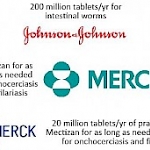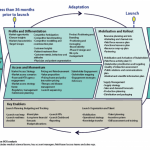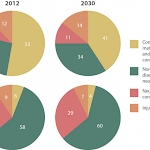
Opinion
Gene therapy
50 years after it was first proposed, gene therapy - the modification of DNA to treat disease - has gone from science fiction to clinical reality. However, as prices for gene therapies are released, widespread sticker-shock is raising questions about affordability and fair pricing.
20 July 2018

Prosecuting Sexual Violence in Conflict
In light of recent news including the coordinated sexual assaults on women in Cologne, and a spike in attacks against Syrian and Iraqi women, Dr Hope Ferdowsian co-authors a timely piece reflecting on sexual violence crimes during times of conflict. Could justice be better served if clinicians extended their role and were required to provide forensic medical evidence in Courts of Law?
20 January 2016

Donated Drugs Against Neglected Tropical Diseases
One in six of the world’s population live in rural areas, and suffer from poor health - especially chronic diseases caused by infection with parasitic diseases now known as ‘Neglected Tropical Diseases’ or NTDs.
1 June 2014

Metabonomics: The Future for Clinical Treatment?
Metabonomics, namely the observation of small molecules within a biological sample, has emerged as a new potential treatment due to the complexity of mainstream genetic and biomedical research.
1 October 2013

Cancer: A Global Issue
While remains a widespread view that cancer only affects those in wealthier regions of the world and the elderly, at least half of cancers are diagnosed today in developing countries and these carry the greatest burden of premature mortality from cancer.
1 May 2013

Research
The Ageing Heart
Research based at Imperial College in the area of Popeye domain containing aims to provide a novel insight into the ageing process and potentially provide new therapeutic opportunities to help the ageing heart.
1 May 2013

Ageing Societies
Better co-ordinating care, improving the flow of patient information and ensuring that adequate funding mechanisms are in place are crucial if societies are to deal with the challenges posed by ageing societies.
1 May 2013

The BRICS
Since their emergence as a group, many commentators have championed the BRICS as good news for global health. However, this article seeks to explore whether it is right to assume that their economic accolades readily extend to the sphere of Global Health.
1 January 2013

How to Plan a Successful Biopharma Product Rollout
Effectively launching a new biopharma product, however, has never been more challenging. In addition to a litany of regulatory issues, companies face high stakeholder expectations, numerous market-access hurdles, and stiff competition, all of which are made more formidable by the business realities of the industry.
1 October 2012

Spending the Money Wisely
All the heroic ambitions for improving global health must confront the prosaic reality of finding the necessary financial resources.
1 October 2012

Multi Drug-Resistant Tuberculosis
This article examines why drug resistant TB has come into existence, how it can be categorized, what treatment options are available and how the global health community plans to combat this growing threat.
1 October 2012

On the Benefits of Competition in Healthcare
Governments faced with rising costs and growing demand are constantly searching for methods of delivering better healthcare. Reforms which promote competition are currently very much in vogue, yet while the political appeal is simple critics argue that the features of healthcare make the use of competition inappropriate.
1 October 2012

Mental Health and the Military
Never far from the media spotlight has been the mental health of those presently serving in the armed forces, those who have served (veterans), as well as the wider military community.
1 October 2012

Antibiotics in Decline
The majority of antibiotic use is in the community, however the impact of antibiotic resistance is felt most acutely when treating patients in healthcare settings.
1 October 2012

Global Mental Health
For global health to truly deliver the overarching aim of health equality for all, it must overcome the artificial dualism separating mental from physical illness
1 May 2012






